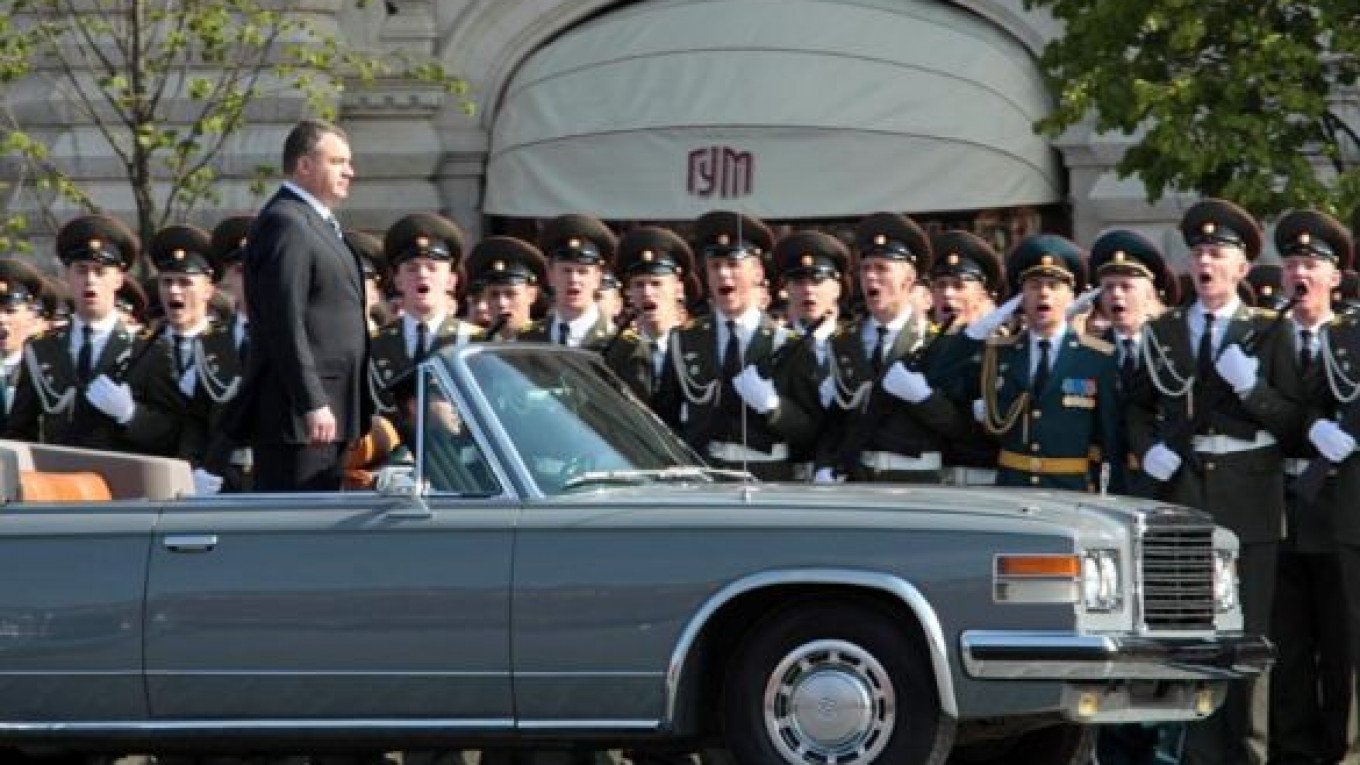A car linked to Defense Minster Anatoly Serdyukov was involved in a pileup of about 10 vehicles on Bolshoi Krasnokholmsky Bridge on the Garden Ring Road on Wednesday afternoon, Interfax reported.
But Serdyukov’s spokeswoman said the primary car used by her boss was parked at the ministry and not involved in the accident.
“The minister?€™s car did not get into any kind of accident today,” spokeswoman Irina Kovalchuk told Interfax.
An unidentified law enforcement official told Interfax that a car from Serdyukov?€™s fleet of vehicles was among those caught in the pileup on Bolshoi Krasnokholmsky Bridge, which is part of the Garden Ring and stretches between Taganskaya Ploshchad and Nizhnyaya Krasnokholmskaya Ulitsa.
It was unclear whether the Defense Ministry vehicle had been using its official flashing blue lights to break traffic rules and drive in the oncoming lane, possibly causing the accident. But Interfax, citing a reporter at the scene, said the damaged vehicle was standing in the oncoming lane.
?€?About 10 cars have crashed on Krasnokholmsky bridge on the Garden Ring, and one of them is a car from the garage of Russian Defense Minister Anatoly Serdyukov," the law enforcement official said.
It was unclear whether anyone had been injured in the accident. Interfax said there were no fatalities.
Traffic police were investigating at the scene.
Flashing blue lights are the bane of Moscow drivers and have been blamed for several accidents in recent months. Anger over the impunity that the lights offer government officials spawned the Blue Buckets organization of private drivers that has staged a number of protests. The government has tried to stifle the protests but at the same time it has moved to limit the number of officials who are allowed to use the lights.
The Bolshoi Krasnokholmsky Bridge was built in 1938 and, at 168 meters, is the longest in downtown Moscow.
Related articles:
A Message from The Moscow Times:
Dear readers,
We are facing unprecedented challenges. Russia's Prosecutor General's Office has designated The Moscow Times as an "undesirable" organization, criminalizing our work and putting our staff at risk of prosecution. This follows our earlier unjust labeling as a "foreign agent."
These actions are direct attempts to silence independent journalism in Russia. The authorities claim our work "discredits the decisions of the Russian leadership." We see things differently: we strive to provide accurate, unbiased reporting on Russia.
We, the journalists of The Moscow Times, refuse to be silenced. But to continue our work, we need your help.
Your support, no matter how small, makes a world of difference. If you can, please support us monthly starting from just $2. It's quick to set up, and every contribution makes a significant impact.
By supporting The Moscow Times, you're defending open, independent journalism in the face of repression. Thank you for standing with us.
Remind me later.


